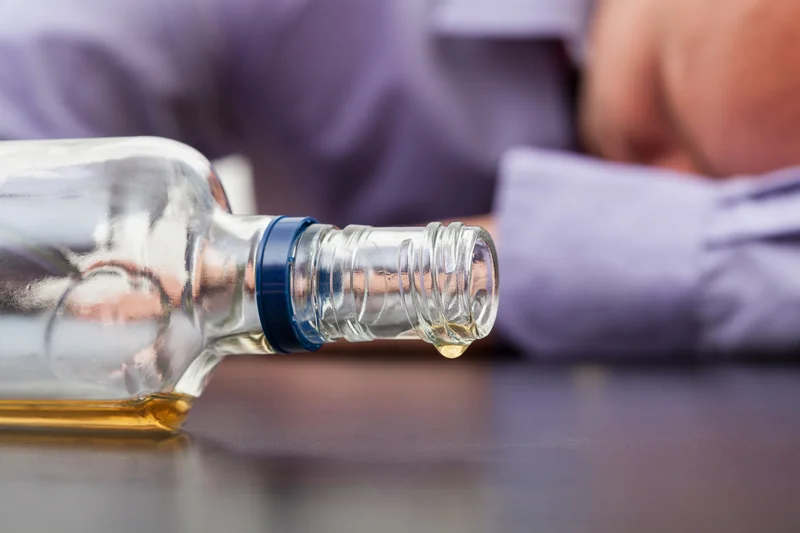
When someone is addicted to alcohol, it alters their behavior in predictable patterns. Here is the hard truth, the family, the friend, the significant other, the child, the one experiencing the outbursts hasn’t done anything wrong. Having someone close to you, whether it is a friend, a romantic partner, a family member, or even a parent who struggles with addiction, is challenging.
- These outbursts are akin to a volcano blowing out sideways rather than straight-up, as the emotions will always find a way out.
- We’re here to answer your questions about anger and irritability, as a consequence of alcohol abuse.
- Seeking support from therapists, support groups, or other sober individuals can help you navigate this challenging period and develop healthy coping mechanisms.
- Those expectations can also arise from what we’ve learned about alcohol from family members and peers.
- Remember though that everyone reacts differently to alcohol so these should serve only as general pointers rather than definitive conclusions.
- This is something millions of others with an alcohol addiction have done.
Attention Seeking Behavior: Decoding the Signs and Understanding its Roots
By Buddy TBuddy T is a writer and founding member of the Online Al-Anon Outreach Committee with decades of experience writing about alcoholism. Because he is a member of a support group that stresses the importance of anonymity at the public level, he does not use his photograph or his real name on this website. In other words, their behavior, rather than your reaction to their behavior, becomes the focus.
Overcome Alcohol and Anger Issues With Help From WhiteSands Treatment
Alcoholism can significantly impact a person’s physical, emotional, and social well-being. It can lead to various negative outcomes, including liver disease, mental health problems, and relationship issues. Additionally, even people not struggling with a substance use disorder can experience anger and these other emotions.
FAQs About Alcoholism And Anger
Furthermore, unprocessed anger can lead a person in recovery toward a relapse. Understanding the psychology behind mean drunk behavior is crucial for addressing this issue effectively. It’s not just about willpower or moral character; there’s a complex web of factors at play. By delving into the science behind alcohol-induced aggression, we can gain valuable insights into prevention and treatment strategies. At Renaissance Recovery our goal is to provide evidence-based treatment to as many individuals as possible.
For 24/7 Treatment
If you think this is a possibility, perhaps it is time to stage an intervention. We at the Discovery Institute want to help you be properly equipped to help your loved one. That is why we have compiled an intervention guide for you to use. Please reach out and examine that if you have any questions.
Symptoms of Alcoholic Rage Syndrome
He has written extensively on a range of topics, from finance and business to technology and travel. After obtaining a degree in journalism, he pursued a career as a freelance writer, beginning his professional journey by contributing to various online magazines. A month ago, after being out drinking, he came home very late. I made a joke that upset him and he started yelling and calling me names. I have learned that when Tom gets like that, it’s best to just agree with him. A person in active addiction will do things that cross their own moral boundaries.

- These programs typically last 30, 60, or 90 days, sometimes longer.
- You just happen to love someone who is probably going to need professional treatment to get healthy again.
- Call us today to get the help you need , we’re available 24/7.
- Learning to be more responsible for your actions takes time, but it’s a necessary step for individuals who have alcohol and anger management problems.
- Control of emotions isn’t the only link between alcohol and anger.
- Alcohol can impair judgment and lower inhibitions, making it more difficult for people to control their emotions and actions.
There are multiple reasons why you may experience increased feelings of anger after quitting alcohol – let’s explore three of the most common. During the hangover or withdrawal phase, irritability often becomes more pronounced drug addiction treatment due to several mental factors. The body experiences a rebound effect as it tries to restore balance, leading to increased anxiety and stress hormone levels. Physical discomfort from dehydration, headaches, and poor sleep quality can further contribute to irritable moods.

Social Isolation
- You’ll also have the opportunity to connect with our licensed Reframe coaches for more personalized guidance.
- Despite enjoying alcohol’s initial relaxing effects, many people experience a surge in agitation or even downright aggression.
- A person in the center of addiction will many times just flat out be angry.
- The absence of alcohol, previously used by many as a coping mechanism, exposes the nervous system to a new state of equilibrium, often resulting in heightened emotional sensitivity.
- If you have an alcohol use disorder, you may have found outbursts of anger are causing problems in your life.
- Anger management therapy is one of the best options available for helping you understand your emotions and find effective ways to cope with them.
Many people struggling with substance abuse also experience anger issues. This can negatively impact relationships with friends, family, and your overall health (including blood pressure and heart disease). Treatment facilities can teach you coping skills to identify triggers, manage anger in a controlled way, and practice deep breaths. Support groups can also provide a safe space to connect with others who understand.

The Link Between Anger and Alcoholism
Many people who drink are never violent and even those who do become aggressive won’t do so all the time. But there is strong evidence of a link between alcohol and aggression. Outpatient programs are often part of aftercare programs once you complete an inpatient or PHP program. It is important for people undergoing treatment to have a stable and supportive home environment without access to drugs and alcohol. In some cases, we may know someone who was struggling with addiction and sought recovery. However, they now seem to be dealing with dry drunk syndrome.
That’s because drinking lowers inhibitions and makes us less likely to consider the consequences of our actions. why are alcoholics so angry It’s also worth mentioning how our cultural norms factor into this equation. In societies where aggression is linked to masculinity, you’ll often find higher rates of alcohol-related violence. This isn’t because men are inherently more aggressive—it’s due to societal expectations and conditioning. Alcohol works by lowering inhibitions, which means those latent feelings of irritability can quickly escalate into full-blown rage.
